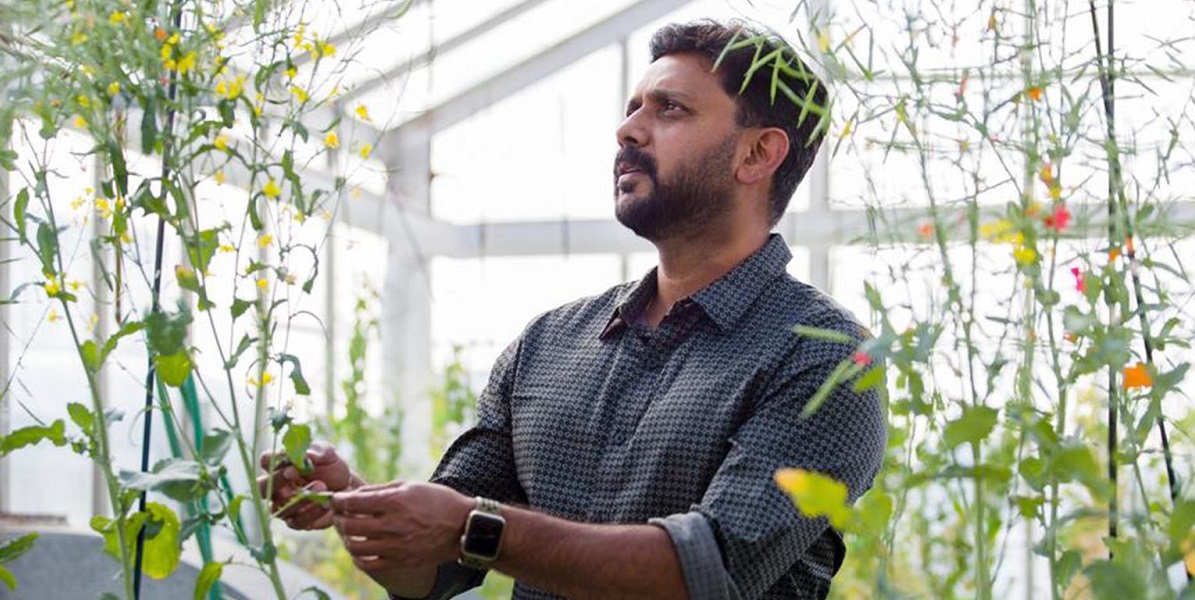
UCalgary Produces High-Yielding Gene Edited Canola
February 3, 2021| |
Biologists from the University of Calgary were successful in modifying the height and shape of the canola plant by altering just a single gene using gene editing, potentially improving its ability to yield more.
The scientists worked on a wild type strain of the canola. Their objective was to modify the height and shape of canola by targeting the BnD14 gene, a receptor for the strigolactone hormone. Previous studies have proven that shorter plants with less strigolactone produced more branches. By altering the gene, the scientists were able to change the plant's architecture and produce shorter canola with much more branches and flowers thereby increasing their individual yield potential. They recorded that the number of branches increased from 20 to 60 per plant and that the production of flowers increased by about 200%. After editing the gene, the scientists crossbred the edited canola line to eliminate the DNA used for gene editing to obtain the edited strain of the canola without traces of foreign DNA. The next step for the researchers is to conduct confirmatory field trials.
The development of this gene-edited canola can lead to a significant increase in yield while maintaining the same area available for planting.
Read the news release from the University of Calgary to learn more.
| |
You might also like:
- Canada Celebrates 25 Years of GM Approvals
- Innovation Study Demonstrates Financial Benefits of HT Canola in Canada
- Researchers Discover Gene to Help Produce Fatter and Oilier Seeds
Biotech Updates is a weekly newsletter of ISAAA, a not-for-profit organization. It is distributed for free to over 22,000 subscribers worldwide to inform them about the key developments in biosciences, especially in biotechnology. Your support will help us in our mission to feed the world with knowledge. You can help by donating as little as $10.
-
See more articles:
-
News from Around the World
- ISAAA Report on Global Adoption of GM Crops in 2019 Now Available
- GM Mosquitoes Key to Stopping Zika Virus Spread
- Scientists Discover A New Tool to Immediately Detect Bitterness in Almonds
- Researchers Work on Making Wheat and Peanuts Less Allergenic
- Golden Rice Could Supply Up to 50% of the Average Daily Requirement of Vitamin A
- Punjab Seed Council Approved Two New Bt Cotton Varieties
-
Research Highlights
- Team Effort Produces High-Quality Reference Genome Sequence of Switchgrass
-
Plant
- UCalgary Produces High-Yielding Gene Edited Canola
- Scientists Successful in Obtaining Heritable Gene Targeted Events In Tobacco
- TALEN Beats CRISPR-Cas9 in Editing Tightly-packed DNA
- Gene-edited Canola Shows Resistance to White Mold
-
Health
- Unraveling Coronavirus Structure for Effective Vaccine and Medication
-
Read the latest: - Biotech Updates (December 17, 2025)
- Gene Editing Supplement (December 17, 2025)
- Gene Drive Supplement (February 22, 2023)
-
Subscribe to BU: - Share
- Tweet

